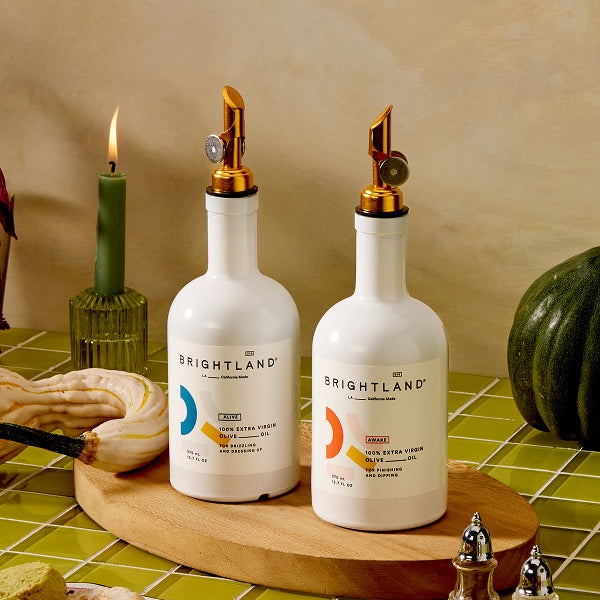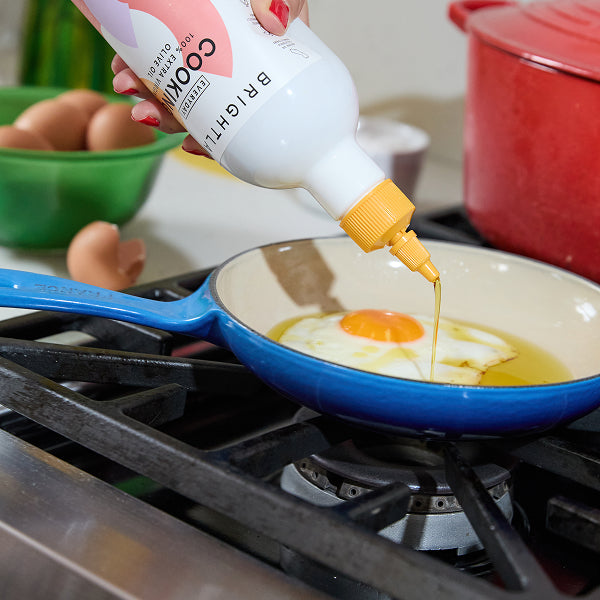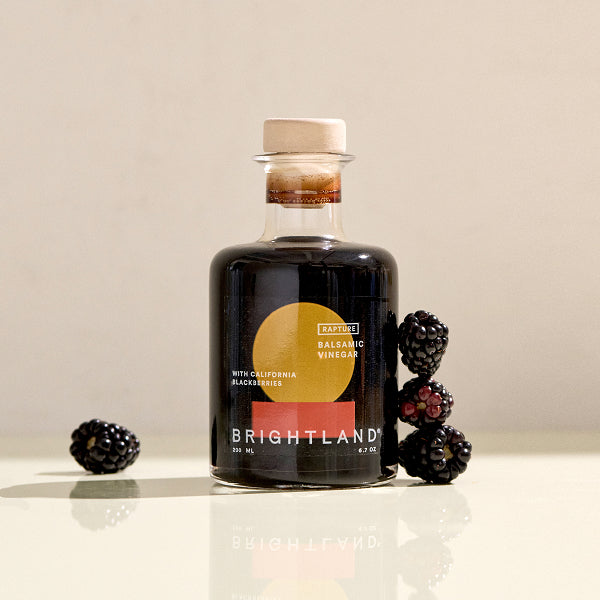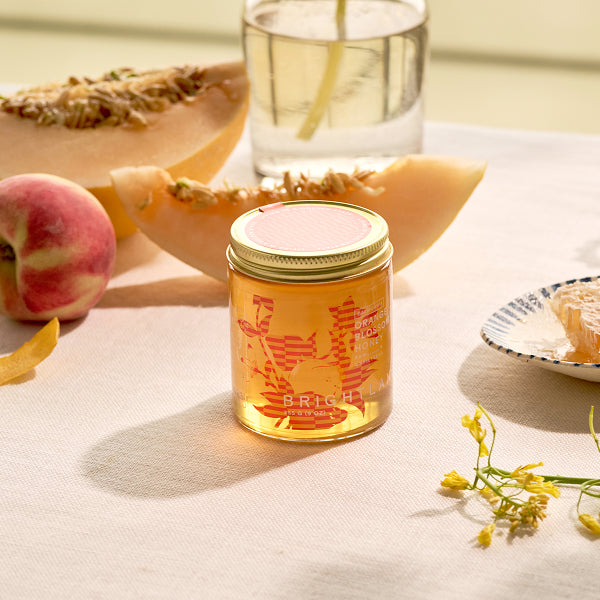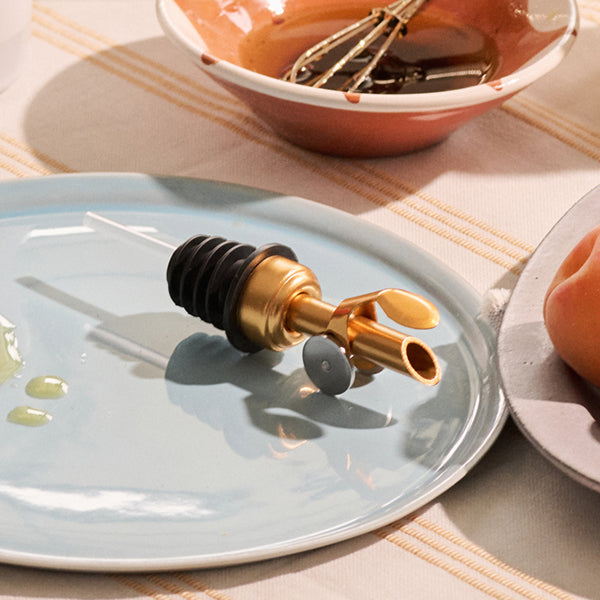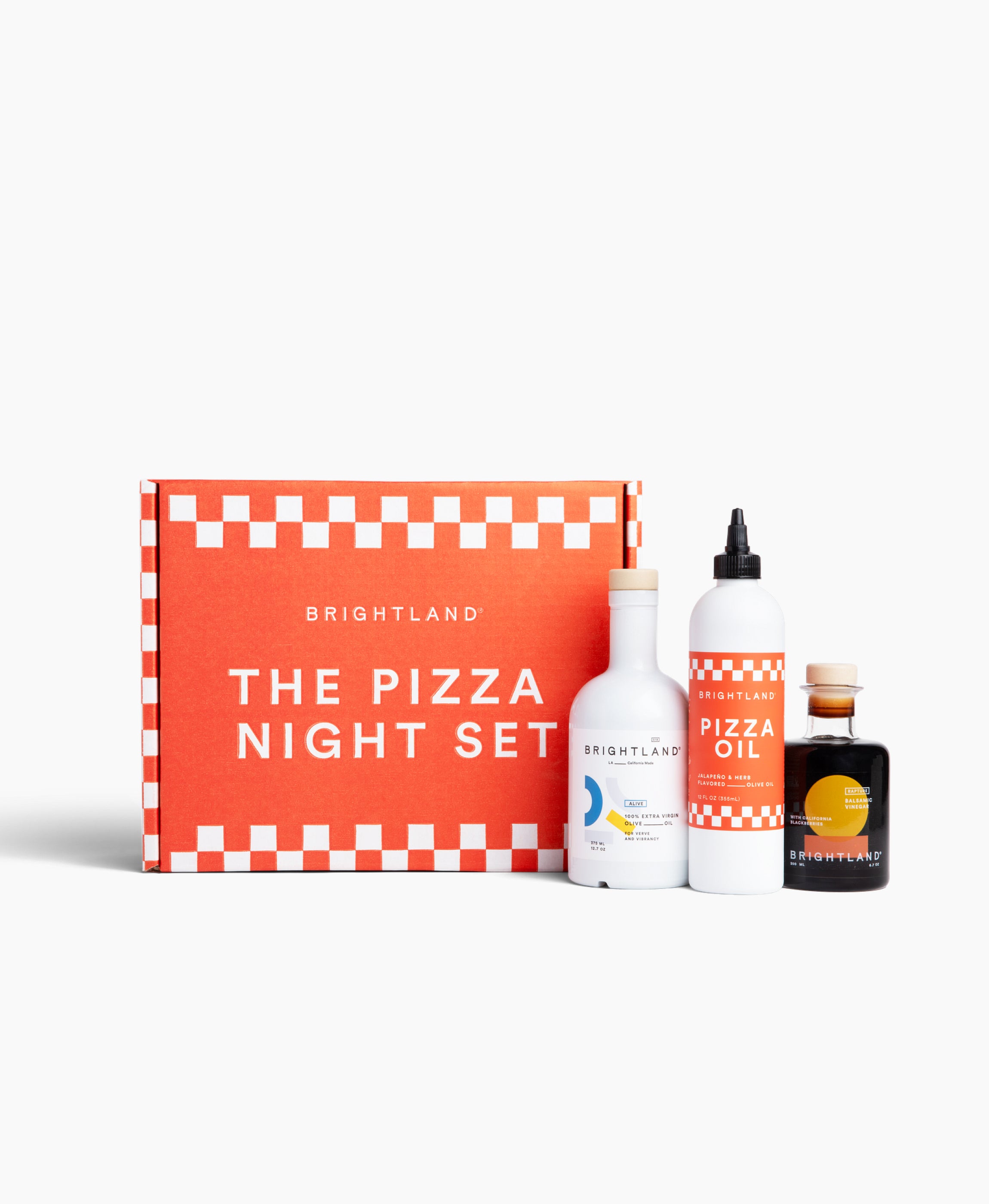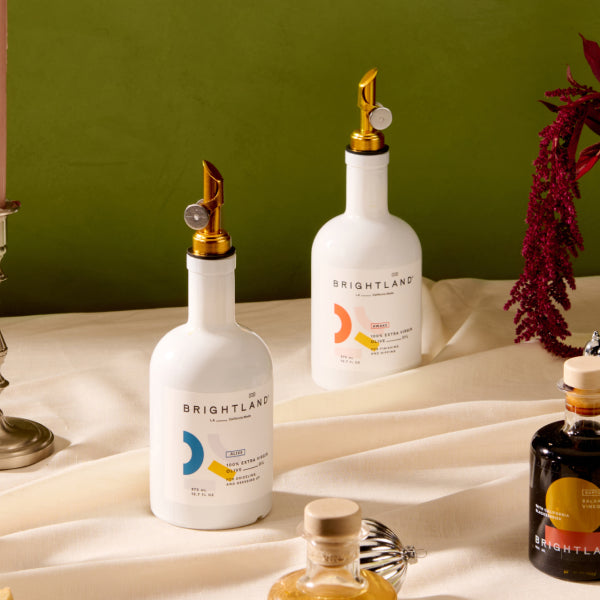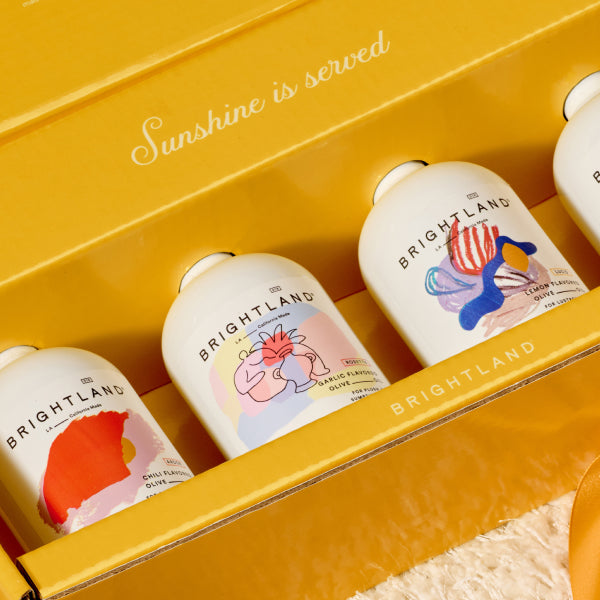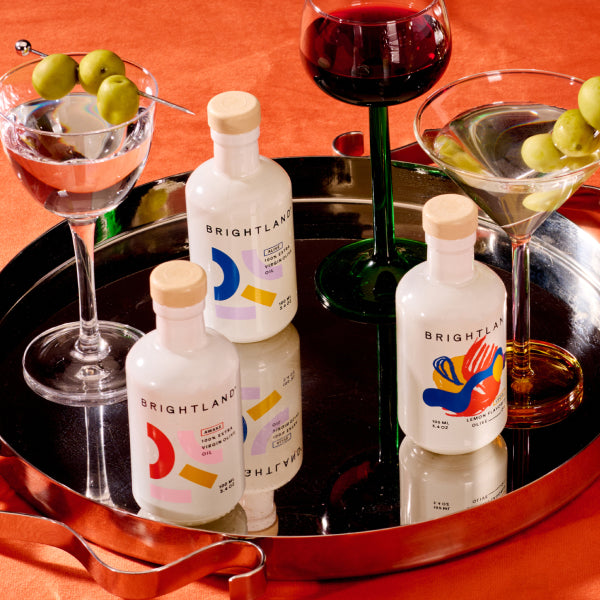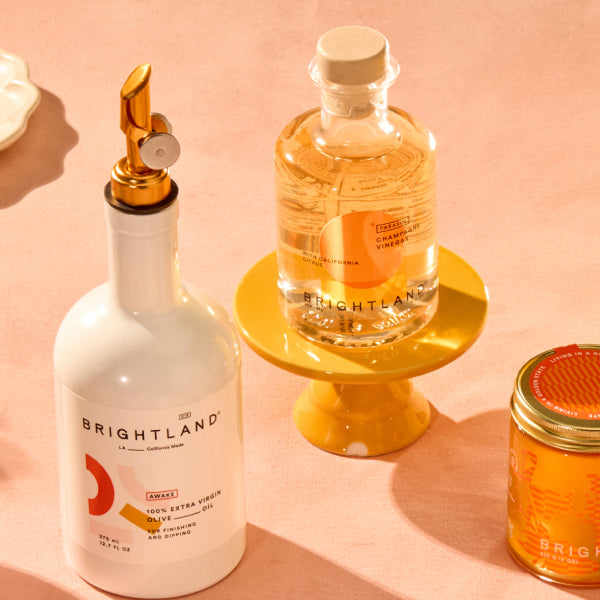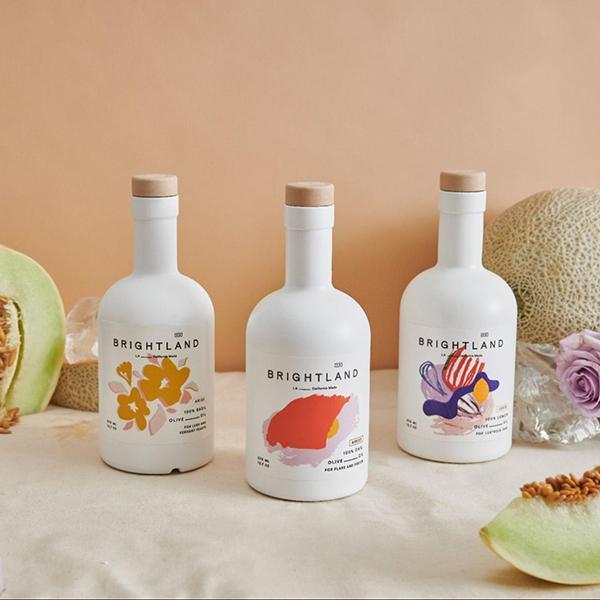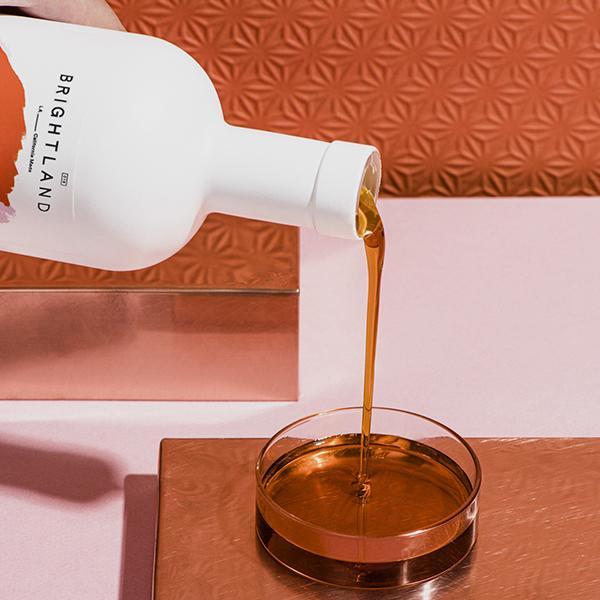There is a lot of confusion around which cooking oils are healthy and what effect they have on cholesterol. In this guide, we explain the link between olive oil and cholesterol and offer tips for lowering your cholesterol through dietary changes.
Is Olive Oil Good for Cholesterol?
The short answer is yes, olive oil can be good for cholesterol — especially if it replaces other sources of less healthy fats. A quick primer on cholesterol — There are two types: low-density lipoprotein (LDL), or "bad" cholesterol, and high-density lipoprotein (HDL), or "good" cholesterol. Having too much LDL cholesterol can increase your risk of heart disease and other serious conditions, including artery plaque buildup that can lead to a heart attack. On the flip side, HDL cholesterol helps lower your LDL cholesterol. Thus, having the right levels of HDL and LDL cholesterol is very important to your health.
As for how olive oil and cholesterol are linked, olive oil is high not only in antioxidants but also polyunsaturated and monounsaturated fats, which are the healthier kinds of fats. These fats have been shown not only to improve cholesterol levels but also decrease your risk for cardiovascular disease. (Learn more about whether olive oil is healthy or not.) Every healthy diet should have at least some polyunsaturated and monounsaturated fats in them.
Types of fats you want to avoid are saturated fat and trans fats. Trans fats are mostly found in packaged foods and other products containing partially hydrogenated vegetable oil. Although they have been banned by the FDA and are being phased out, you can still find them in some older products. You really have to watch out for saturated fats, which are found in high fat meats and dairy products such as red meat and whole milk. Eating too many saturated fats can increase your cholesterol levels — in particular, LDL cholesterol.
[close type="rte"] [open type="images" count="1"]
[close type="images"][open type="rte"]
Substituting olive oil for products high in saturated fats, such as butter and lard, can improve your cholesterol levels over time without having to sacrifice taste and satisfaction. If you do not like the taste of plain olive oil, flavored olive oil can be a great way to start incorporating it into your diet more often. However, not all types of olive oil benefit cholesterol equally. For the greatest effect, you should seek out extra virgin olive oil, which has undergone the least processing and thus contains the highest levels of nutritional compounds.
Other Tips for Lowering Cholesterol
Substituting olive oil is not the only thing that you can do to lower your LDL cholesterol. If you are concerned about your cholesterol levels, then reducing your consumption of meat and dairy products will go a long way toward helping with that. Try lower fat dairy products and plant-based alternatives that are lower in cholesterol. If you have increased your intake of dairy products due to their health benefits, then try substituting in some whey protein, which offers many of the same health benefits but also works to lower cholesterol.
Eating soluble fiber can also regulate how much cholesterol is absorbed into your bloodstream. This fiber is found in foods including apples, pears, Brussels sprouts, kidney beans and oatmeal. By incorporating soluble fiber into your diet, you will help reduce the amount of cholesterol that gets into your blood.
While trans fats are currently being phased out of the market, you still need to keep an eye out for them and carefully read labels of any packaged foods you eat. If they contain partially hydrogenated or hydrogenated oils, then they will contain trans fats as well, and you should opt for another food item that does not have these oils in it. They are not the same as healthy oils such as olive oil, which are not heavily processed so that their molecular structures are altered. (Want to incorporate more olive oil into your diet? Learn about drinking olive oil here.)
Lifestyle changes, such as exercising and stopping smoking, can also help reduce cholesterol levels. If your doctor is concerned about your cholesterol, they will help you put together a dietary and lifestyle plan that will help lower your LDL cholesterol and increase your HDL cholesterol.
[close type ="rte"] [open type="images" count="1"]
[close type="images"][open type="rte"]
The higher the quality of olive oil, the greater its nutritional benefits for cholesterol and beyond. At Brightland, we carefully harvest and bottle olive oil to ensure the highest quality and freshness by the time it gets to our customers. We keep all of our olive oil in opaque glass packaging to protect it from UV damage and ship it straight to your door for ultimate convenience. Order today!
[close type="rte"]
